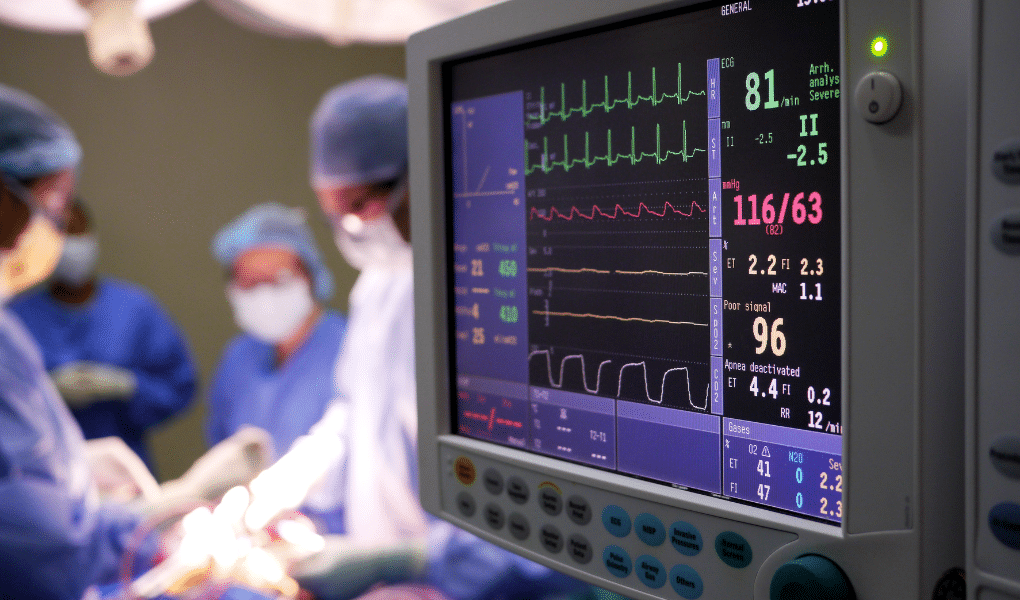AICD Misplacement Results in Cardiac Myocardium Perforation
Negligence in the placement, follow-up, and discharge of an AICD device caused a perforation in the patient’s heart, leading to open cardiothoracic surgery to repair the myocardium.
Case Summary
This 2019 case involves a 28-year-old female with congenital long QT syndrome type 2 who presented for automatic implantable cardioverter-defibrillator (AICD) placement. In the immediate postoperative period, the patient suffered from nausea and pain at the implantation site but was discharged home. The following day she presented to an urgent care clinic with persistent symptoms. A CT scan of her chest revealed that the AICD leads had perforated the myocardium with surrounding hemorrhage. After being admitted to the ICU, the patient underwent open cardiothoracic surgery to repair her myocardium.
Case Theory
LQT2 results from insufficient potassium ion cardiac activity. This deficiency prevents the heart from functioning properly, resulting in arrhythmias (abnormal heart rhythms). People with LQT2 can develop arrhythmias when experiencing emotional stress, or when unexpected circumstances arise. Long QT syndrome (LQTS) is a rare cardiac channelopathy that causes sudden death from torsades de pointes and ventricular fibrillation. Physical and emotional stress are strongly correlated with syncope and sudden death.
Patients with LQTS are treated with lifestyle modification, beta-blockers, left cardiac sympathetic denervation (LCSD), and implantable cardioverter-defibrillators (ICDs). The prohibition of competitive exercise and the avoidance of drugs that prolong the QT interval are critical lifestyle modification issues. Although β-blockers are the primary treatment for LQTS, these drugs are not always effective. Complications associated with long-term AICD implantation in young, active patients are significant. However, the AICD procedure is relatively simple and generally highly effective. LCSD is rarely used.
Implantable cardioverter defibrillators (AICDs) monitor the heart’s rhythm with a lead inserted into the right ventricle. It is implanted like a single chamber pacemaker, with the generator lying in the upper chest area and venous access through the subclavian vein. The perforation of a device lead through the myocardium is a recognized complication of cardiac device implantation. Complications associated with cardiac device implantation are estimated to be between 7 and 9.5%. It has been shown that the female sex is independently associated with higher risk. For first-time implantable cardioverter-defibrillator (ICD) recipients, lead perforation was observed in just 0.4% of procedures in the United States National Cardiovascular Data Registry.
In some cases, lead perforation is asymptomatic, and the diagnosis is incidental. In contrast, pericardial effusion is more commonly associated with symptoms of chest pain, neck pain, and shoulder pain. Echocardiography, computerized tomography (CT), X-ray, and video fluoroscopy are used to diagnose the patient. Although perforation is a relatively rare complication, it is associated with significant morbidity and mortality. Myocardial perforation is therefore crucial to acute clinicians’ knowledge of diagnosis and management.
The negligence in the placement, follow-up, and discharge of the AICD device, in this case, resulted in the perforation of the heart.
Expert Witness Specialties
Cardiology Electrophysiologist
An electrophysiologist is a cardiologist who specializes in heart rhythm abnormalities and generally surgically implants most AICDs. An expert Electrophysiologist can opine on the standard of care for discharge and proper follow-up of common post-surgical symptoms.
Questions for Expert Witnesses
- What measures can cardiologists take to ensure the proper placement of AICDs and prevent injury to the myocardium?
- Are pain and nausea expected symptoms following an AICD implantation?
- Was the discharge of this symptomatic patient appropriate?
Expert Witness Involvement
Here is what a cardiology electrophysiologist expert had to say about this case:
Expert Witness Response E-449282
 I place AICDs on a weekly basis. Cardiologists can prevent injury to the myocardium by practicing proper implant techniques, fluoroscopy, and by understanding anatomy. I have published and researched pacemaker and defibrillator lead-related perforations.
I place AICDs on a weekly basis. Cardiologists can prevent injury to the myocardium by practicing proper implant techniques, fluoroscopy, and by understanding anatomy. I have published and researched pacemaker and defibrillator lead-related perforations.
About the author
Erin O'Brien
Erin O'Brien is a senior medico-legal writer and editor, with 25 years of experience authoring healthcare deliverables. Previously, Erin authored an award-winning column in the health and wellness sector, guest hosted a wellness radio show, and received an FMA Charlie Award for Excellence in Writing.
Erin has reviewed and completed case studies for thousands of medical malpractice cases, both plaintiff and defense nationwide, and was presented the US Chamber of Commerce Best Small Business Blue Ribbon designation. Erin is an experienced Medical Risk Consultant and device start-up project manager. She has consulted for numerous successful healthcare and bio-tech start-ups. After completing a Bachelor of Science degree at the University Of Wisconsin, Erin pursued an educational background in Healthcare Risk Management at the University of South Florida. Erin crafts her work with attention to detail, readability, healthcare marketing regulations, and medical standard of care.
Find an expert witness near you
What State is your case in?
Subscribe to our newsletter
Join our newsletter to stay up to date on legal news, insights and product updates from Expert Institute.



